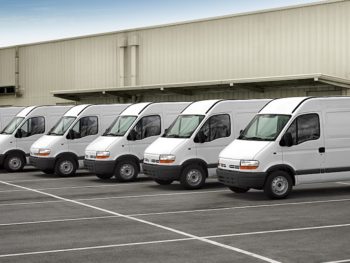A legacy of the coronavirus crisis will be an “increasing split” between the way fleet cars and vans are managed as a result of fundamental differences in their operation.

According to FleetCheck, while there have always been major differences in car and van fleet management as disciplines, the lockdown and the new methods of working adopted will accelerate the shift. As a result, van management will become increasingly focused on practicalities while car fleets – although remaining essential – will become focused on journey management.
Managing director Peter Golding said: “Really, this is all about the need, in a world where coronavirus is still very much present, to minimise face-to-face contact with others and use video-conferencing as an alternative. It’s a question of how these factors will affect the number of company car journeys that are undertaken.
“There is a strong argument that these developments have potentially changed the shape of car fleets completely until a vaccine or other solution emerges. In the past, whether you needed a company car was often decided on the basis of how many miles you covered in a year. Now, that is likely to change to look at quality and necessity of usage.
“Even when the coronavirus question is resolved to the point where real-world meetings are possible, a fundamental question for car fleets is going to be whether a journey needs to take place? Can that monthly client account meeting now be done once a quarter by car and the rest of the time as a video conference, saving everyone time and money?
“The big difference for van fleets is that no-one really questions whether a journey is necessary. If it is being undertaken, it is because a delivery is needed or an engineer and their equipment are required in a particular place. Necessity is taken for granted.
Golding stressed though that he did not see company cars becoming less popular or less numerous as a result of the shift.
“Our view is that, even in the longer term once coronavirus is under control, company cars will be used for fewer journeys. However, those journeys that are undertaken will remain very important to employers. There will always be a need for human contact in a business environment, especially when it comes to building and maintaining important relationships.
“Also, something that is often underestimated but of crucial importance is the sheer flexibility of the company car. It is unmatched as a business transport tool in this respect. If you need to visit a location that isn’t based in a city centre, or to go to two or three varied locations in a day, for example, there is really no other viable option.
“Finally, there are extremely strong pull factors attached to company cars for employees. They remain not only a very popular benefit but, thanks to the low taxation attached to electric vehicles for the foreseeable future, a very cost-effective option.”

